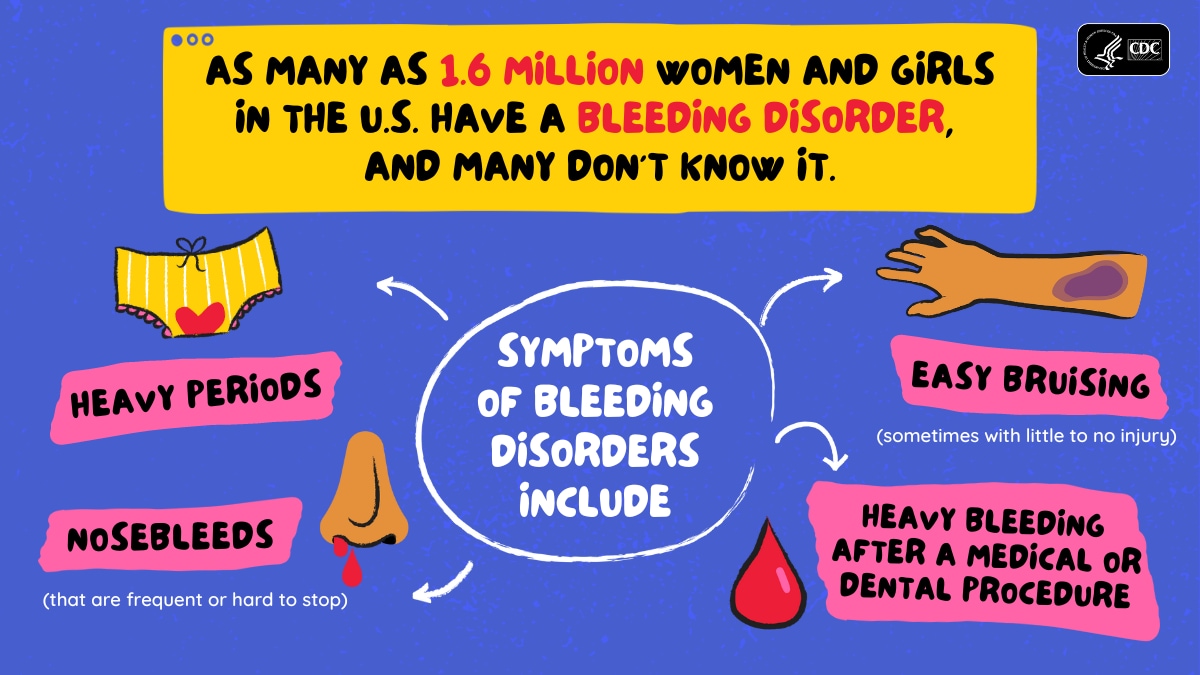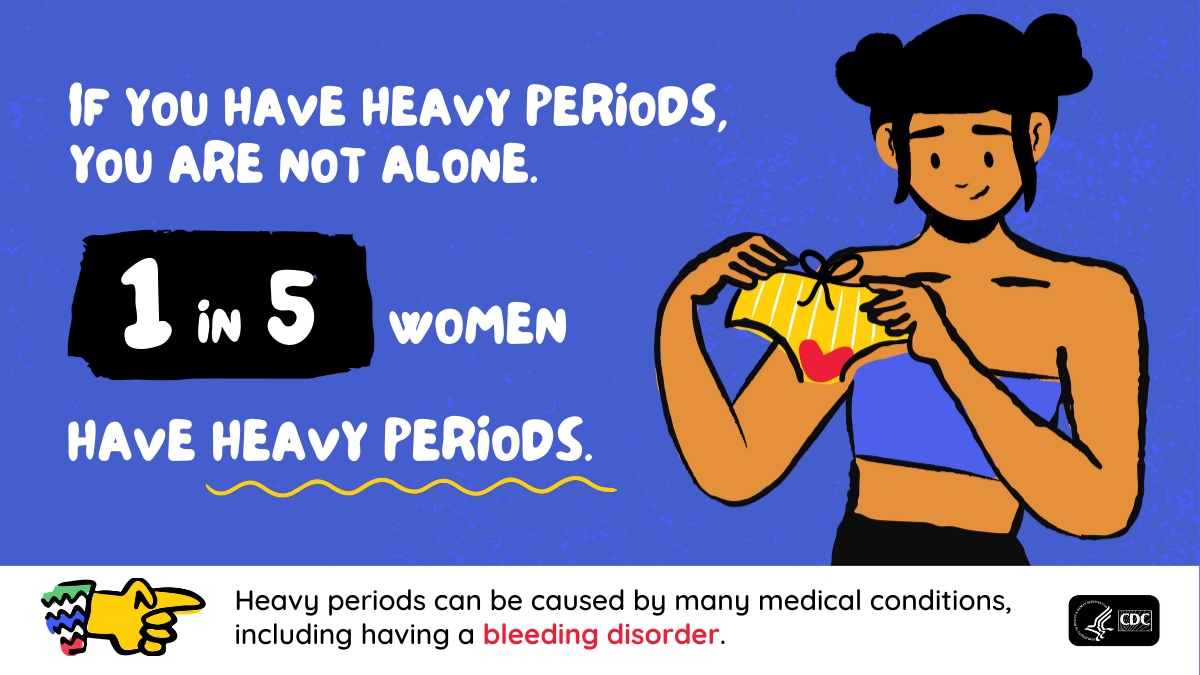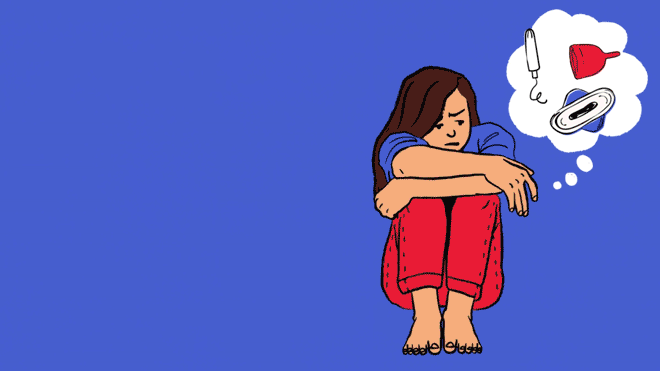Key points
- Many tweens and teens have an undiagnosed bleeding disorder.
- Some may have heavy periods or other symptoms they are embarrassed to talk about.
- Join CDC in spreading awareness of bleeding disorders among adolescents.

Bleeding disorders may go undiagnosed
In the United States, as many as 1% of women, girls, and other people with the potential to menstruate have a bleeding disorder, and many are unaware of their condition. Bleeding disorders are conditions where blood does not clot normally, making it harder for bleeding to stop. Some examples of bleeding disorders include von Willebrand disease and hemophilia.
Heavy bleeding during periods (also called heavy menstrual bleeding) is often one of the most noticeable symptoms of a bleeding disorder. Yet it can be hard for tweens and teens to know whether their periods are heavy, especially if they feel that is normal for their bodies. They may not realize there is a medical reason behind heavy periods, such as having a bleeding disorder.
Other signs of a bleeding disorder include frequent or hard to stop nosebleeds, bruising often with little to no injury, bleeding from a cut or scrape that takes a long time to stop, and heavy bleeding after a medical or dental procedure.
It is important that tweens and teens
- Learn the signs of a bleeding disorder;
- Feel empowered to talk to a trusted adult if they suspect that they might have one; and
- Work with a doctor to find out what is causing their symptoms.
If it is a bleeding disorder, treatment is available to help them live their lives to the fullest and prevent excessive bleeding episodes!
Help us raise awareness
Join CDC in raising awareness of bleeding disorders among tweens and teens by sharing resources and information on your social media channels, blogs, podcasts, and more. Share the sample social media messages and graphics below to help promote awareness of this important topic.
By sharing our materials, you can help tweens and teens with bleeding disorders understand their symptoms and feel empowered to reach out for help.
In your social media posts, please use
- #HeavyPeriods
- #BleedingDisorders
- #HeavyBleeders
Remember to follow @CDC_NCBDDD on X (formerly Twitter) for more messages to retweet.
Videos to share
What is a bleeding disorder and what are the signs?
Sample message
Heavy periods and bleeding disorders
Sample message
Family history of heavy periods and bleeding disorders
Sample message
Graphics to share
"Know the signs" graphic

Sample message
"1 in 5" graphic

Sample message
"Heavy periods" animated graphic

Sample message
Sample message
"How to get help" animated graphic

Sample message
"Family history" animated graphic

